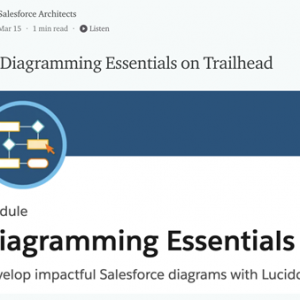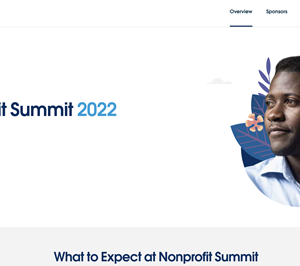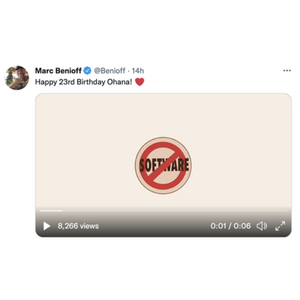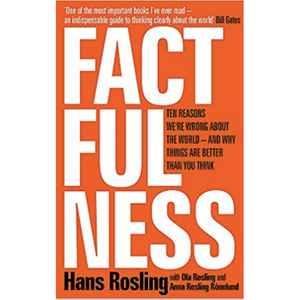The Salesforce Spring ‘22 Release went live last month. As usual there were hundreds of new products and features to get excited about. So we asked some of our team members what were their highlights from the Salesforce Spring ‘22 Release.
Enzo Denti, Salesforce Architect

Multilingual Einstein Bots
I really like this new feature that enables your company to reach out to a larger audience by making it simpler to communicate with you… in their own language.
When I was at Uni in Italy the teacher told us “Computer Science speaks English” and yeah he was right. There are computer terms that you cannot translate. For me, since English is not my first language I always had to catch up to understand. Instead, it’s great how Salesforce is solving this for your customer and providing an easier and more inclusive way for them to get the support they need.
Relevant Links:
Multilingual Einstein Bot – Spring 22 Release Feature
Reach More Audiences with Multiple Language Einstein Bots
UI Test Automation Model
I come from a Developer background and in time I learned to appreciate good, robust automated tests.
I always loved the testing requirements for Apex, not seeing them as a chore to cover the code and make my code deploy, but as insurance that my code was behaving as expected, despite changes. Since the introduction of the Aura component the developer community was asking for a testing tool for the new dynamic UIs.
Finally, it’s here native in Salesforce, the ability to test thoroughly your UI and avoid the boring and repetitive manual testing.
It is flexible as well since it’s agnostic of the application under test and leaves it to you to decide what test runner to use, what ask more, it’s powerful and flexible.
Relevant link:
Write More Robust UI Tests with UTAM
Nkosi Ncube, Developer
Einstein for Nonprofits
Nonprofit organisations generally operate on a low budget and mostly rely on donations and giving the fundraisers tools to efficiently predict donor behaviour makes for efficient fundraising.
Einstein for Nonprofit is the new AI based product designed specifically for Nonprofit cloud, unfortunately not free but at a lesser cost than other AI products, its core component is Einstein Prediction Builder
This product gives non-profits the power to analyse and understand donor behaviour and predict future donor engagement and all this is out of the box.
Linking of CRM data to accounting systems is also enabled to link up finance departments and other teams.
Prerequisites for installing Einstein for Nonprofits
- MyDomain enabled and deployed in your org.
- Salesforce Data Privacy and Protection enabled. This setting is enabled by default for your org.
- A license for SFDO Insights Einstein for Nonprofits with a current start date. You can install Einstein for Nonprofits if the start date is in the future, but you won’t be able to use the app until the date that the license is active. If your license expires, you receive an error message.
- NPSP Recuring Donations configured for your org.
- Einstein Prediction Builder enabled for your org.
Relevant link:
Before You Install Einstein for Nonprofits
Mark Jones, Salesforce Consultant

Set the Order for Your Record-Triggered Flows
Admins can now set the Order of Execution for their Record-Triggered Flows. This feature is something that has been in high demand for quite some time. It’s great to see it finally come to be. All you need to do to be able to set the order is add a number between 1 and 2,00 in the Advanced Settings of your Record-Triggered Flow and you’re set. Do bear in mind that Flows with a Trigger Order of 1 – 1,000 will run first, followed by Flows without a number, followed by Flows with a Trigger Order between 1,001 and 2,000.
This feature makes it easier than ever to create multiple Record-Triggered Flows on a singular object. On top of that as a bonus highlight, you can see the order of all of your Record-Triggered Flows in the new Flow Trigger Explorer. Flow Trigger Explorer groups your Flows into Fast-Field Updates, Actions and Related Records and Flows that Run Asynchronously, giving you a great means of viewing how your and when your Flows will run.
Relevant Links
Define the Run Order of Record-Triggered Flows for an Object
Visualize All Your Record-Triggered Flows in One Place with Flow Trigger Explorer
Migrate Your Workflow Rules into Flow
When Salesforce initially announced the plans to retire Workflow Rules and Process Builder, one of the things a number of Admins that I have personally spoken to were concerned about was how they move their older pieces of declarative automation into Flow? This is where Salesforce’s automation migration tools come into play. Now you can migrate your existing Workflow Rules into Flow with an easy-to-navigate wizard that will intelligently create the right Record-Triggered Flow based on the Workflow Rule that you’re migrating. It’s a tool that does the job it is designed to do very well. However, I would recommend reviewing your Workflow Rules before making any decisions on which ones to migrate.
I’d also recommend reading the release notes as the tool can’t migrate all Workflow Rules at this time. Although updates are due to be made to resolve that. If you have Workflow Rules that can be copied into Flow like-for-like, this is a tool that will help you do that. FYI, a migration tool for Process Builder is slated for a future release.
Relevant Link:
Convert Workflow Rules to Flows with the Migrate to Flow Tool (Beta)
About Cloud Galacticos
Cloud Galacticos is a Salesforce Consulting Partner with an all-star team. We are user and developer group leaders, bloggers, MVPs and all round Salesforce nerds. Our Salesforce consultancy has people all over the UK including Manchester, Leeds, Newcastle, Sheffield, and London.
So if you are looking for a Salesforce Gold partner with experience to help you make the most of your org, why not get in contact?
 Want to build up your Slack cert skills and get recognition for your knowledge?
Want to build up your Slack cert skills and get recognition for your knowledge? Hot News straight from the Salesforce CTO Steve Tamm, here are 2 big updates to Formulas…
Hot News straight from the Salesforce CTO Steve Tamm, here are 2 big updates to Formulas… I hope you and your families & friends have an enjoyable Easter!
I hope you and your families & friends have an enjoyable Easter!


 I always wanted to have a learning experience in my career. Also to make sure any company I joined should have that learning curve and should also have that family time.
I always wanted to have a learning experience in my career. Also to make sure any company I joined should have that learning curve and should also have that family time.  I celebrated my one year wedding anniversary in the UK, but I haven’t had the chance to explore many places.
I celebrated my one year wedding anniversary in the UK, but I haven’t had the chance to explore many places. Just as people started to pronounce it properly, we wave goodbye to Pardot – and say hello to the catchily named ‘Marketing Cloud Account Engagement’.
Just as people started to pronounce it properly, we wave goodbye to Pardot – and say hello to the catchily named ‘Marketing Cloud Account Engagement’. At Galactico Towers we are working more and more in the MuleSoft world as well as Salesforce.
At Galactico Towers we are working more and more in the MuleSoft world as well as Salesforce. So it’s nearly 500 weeks since I started this blog, thank you for all your support and feedback over the years!!
So it’s nearly 500 weeks since I started this blog, thank you for all your support and feedback over the years!!
 Our COO
Our COO  The second person from our team speaking at London’s Calling will be
The second person from our team speaking at London’s Calling will be 


 The show is hosted by Trevor Stockwell, a leadership coach and trainer.
The show is hosted by Trevor Stockwell, a leadership coach and trainer.












